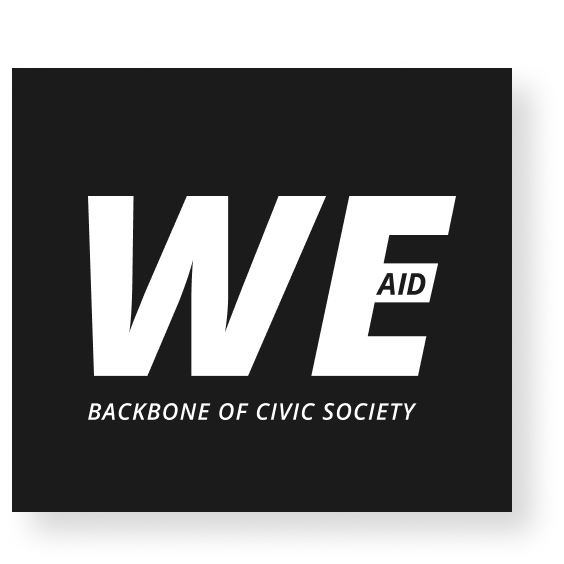
08
Aug
Aug
EU Call - Europe needs professional fiscal hosts
Christian Berger
 Fiscal Hosting
Fiscal Hosting
A fiscal host enables initiatives without their own legal form to act in a legally compliant manner, receive donations and use funding. WE AID is exactly that. As part of the current EU Call for Evidence on the development of a sustainable EU strategy for civil society, we have contributed our perspective – with a clear appeal:
Europe needs professional fiscal hosts.
Our key message to the European Commission:
- Access to civil society engagement is blocked in many places by legal and administrative hurdles – especially for small initiatives, migrant self-organisations, or youth groups.
- Fiscal hosts offer a pragmatic, legally secure, and transparent solution to enable engagement without legal entity status.
- In Germany, there are already functioning examples such as WE AID, interalia, Bureau Ritter and numerous community foundations – but there is considerable legal uncertainty and hardly any structural support.
We recommend: recognition at EU level, a dedicated support programme and a clear legal framework.
Our full feedback and the European Commission's call for evidence can be found below.
We would like to thank the Commission for the opportunity to participate – and invite other stakeholders to get involved as well.
-----
Dear representatives of the European Commission,
We fully welcome the European Commissions initiative to develop a comprehensive EU Civil Society Strategy aimed at strengthening, protecting, and engaging civil society organisations (CSOs) across the EU.
The challenges outlined in the Call for Evidence including the shrinking civic space, limited access to resources, and administrative burdens reflect the very real barriers faced by civil society actors in many Member States. A central yet currently underrepresented solution to these structural issues is the widespread promotion and support of professional fiscal host structures within the EU.
Why Europe needs professional fiscal hosts
In many EU countries, civic engagement is constrained by high formal entry barriers. Establishing a registered non-profit organisation involves legal, tax-related, and administrative hurdles that are often insurmountable for grassroots initiatives, youth-led groups, migrant self-organisations, or ad-hoc campaigns.
Fiscal hosts as institutionalised in the United States under the model of fiscal sponsorship allow such groups to act legally without needing to establish their own legal entity. They provide fiduciary oversight, project administration, donation management, and compliance support. In doing so, fiscal hosts enable civic engagement in a legally sound and professional manner without sacrificing transparency or accountability.
In Germany, providers such as WE AID and interalia demonstrate that this model works. However, they operate without structural support, are limited in scale, and function in a grey legal area without a dedicated framework.
How fiscal hosts contribute to the EU Civil Society Strategy objectives
Establishing and actively supporting fiscal host structures directly contributes to the strategic goals defined by the Commission:
Protection and empowerment of human rights defenders and EU values actors: Fiscal hosts offer secure and supportive operational frameworks for individuals and small groups working in high-risk or politically sensitive environments.
Access to funding: Fiscal hosts facilitate access to both public and private funding sources for informal initiatives, while ensuring robust accountability mechanisms.
Democratising civic engagement: A resilient and diverse civil society depends on structurally enabling participation from underrepresented communities fiscal hosts are a proven tool for this.
Reducing administrative burdens: Fiscal hosts offer standardised, professional solutions that can also support cross-border civil society collaboration within the EU.
Specific proposal to the Commission
We respectfully recommend that the Commission consider the following elements in the further development of the strategy:
Official recognition of fiscal host structures as an essential component of a resilient European civil society.
Establishment of a dedicated EU funding programme to support the institutional development, professionalisation, and scaling of fiscal hosts similar to infrastructure support in the cultural or education sectors.
Inclusion of fiscal hosts in EU funding mechanisms: Fiscal hosts should be explicitly eligible as intermediary organisations in EU funding calls, enabling non-registered initiatives to access support.
Development of a legal and regulatory framework at EU level to define core principles and minimum standards for fiscal hosts, ensuring clarity and legal security.
We thank the Commission for the opportunity to provide input and would welcome the opportunity to engage further on this important topic.




